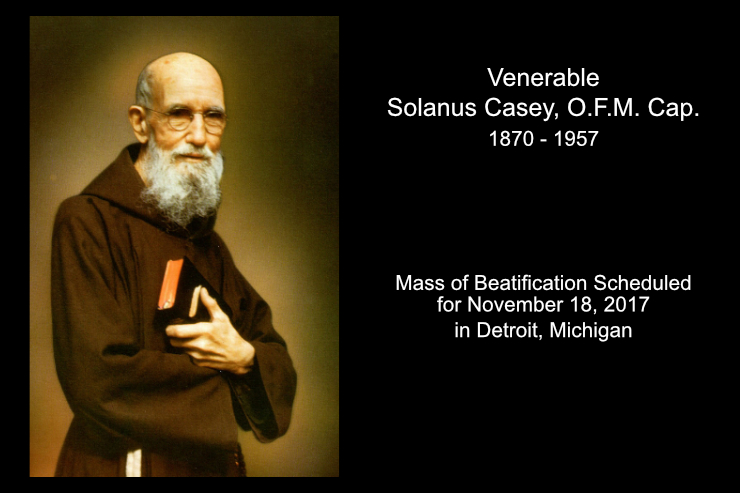When my nephew Michael was getting ready for college he told me he was expected to write a paper in his first week entitled, “How do I know I exist?” After discussing the matter for some time he concluded that the best thing to do was to punch his professor in the nose. The resulting pain when the professor punched back would thereby prove that both of them existed.
Michael is unusual for a college freshman. He was actually interested in the idea. Like anyone who has wondered if things continue to be there once you stop looking at them, Michael realized that in some way the existence of everything was linked with his own existence, and if he didn’t exist, then maybe nothing else did either. To get some answers he’d been snooping through some basic philosophy books and came across René Descartes’ memorable sound byte “I think therefore I am.” Michael found it unconvincing, but wasn’t sure why. Here’s why: Descartes thought the fact that he was aware of the activity of his mind was the proof of his existence. For Descartes thinking was not just a matter of logic or figuring out his tax return. It included the whole range of mental activity like emotions and the experience of pleasure and pain. Despite all his doubts and uncertainty he was at least certain that he was thinking, and that made him conclude that he existed. But the activity of our own mind is not a reliable proof for our existence for one simple reason: it is only the activity of our own mind. Because it is the activity of our own mind it might all be an illusion; or as the scientist from Missouri might say, “it’s only a series of chemical reactions.”
To make sure we exist we have to be in certain touch with something that really does exist outside ourselves. But can the existence of the external, physical world prove our own existence? Not really, because we perceive the external world through our senses which in turn are filtered through our mind. In other words, we perceive everything outside ourselves with our brain– which is inside ourselves. Therefore it is difficult to prove that there is really anything outside ourselves at all. The skeptic’s reaction to the supernatural is “Its only in your head.” But if you follow the philosopher from Missouri far enough you will discover that everything is “only in your head.” And if everything is “only in your head” then you yourself are “only in your head” and whether you really exist or not is an open question. If this is true, then “I think therefore I am” should be re-phrased as, “I think therefore I think I am” or “I think therefore I think I might be.” In other words, Descartes was because he thought, but he was not what he thought he was.
Is there anything outside ourselves with which we can make contact to validate our existence?
What about that lift of the mind and heart when I view a beautiful person, a Raphael Madonna or a breath-taking landscape? Does the experience of aesthetic pleasure prove I exist? It certainly hints at something greater than ourselves, but pleasure is notoriously fickle. What pleases one may cause revulsion to another. At times pleasure may point us toward an objective existence outside ourselves, but that process is unreliable because it is often unrepeatable. So we return to that same mountain top to experience that same sunset which was so sublime, and all we see is the sun disappearing below the hills, so we decide to sit down and eat a sandwich instead. Finally, the man from Missouri will also point out that what we experience as pleasure is also just a series of chemical reactions. So if our senses and our experience of pleasure cannot validate our existence, what can?
Fed up with such pointless speculation Dr Johnson famously kicked a stone to prove that he was real. But what was it about kicking the stone that convinced Dr Johnson that he existed? Would he have been as convinced if he had kissed the stone and not kicked it? I doubt it. It was not only the solidity of the stone, but also the nerve endings in his toes that convinced him that he and the stone both existed. In other words, pain proves our existence. As he hops around on one foot, Dr Johnson tops Descartes with a new proof of human existence. Between his gasps of pain he might have also gasped, “I scream therefore I am!”
Could it be that pain is the ultimate proof of our existence? The man from Missouri will step in at this point to remind us that pain, too, is merely a sensation of the brain and therefore only a chemical reaction. But pain is different from the other sensations that the brain interprets. First of all, pain is the most intense sensation of all. We know that pleasure feels good, but we really know that pain feels bad. Even the most pleasurable experience is not as good as having a tooth pulled out is bad.
Secondly, sensual information and the experience of pleasure are mixed with a mass of data in our brains which causes us to interpret the sensations in subtle and subjective ways, and this process permits all sorts of unreliable conclusions. So for instance the physical pleasure of being kissed is mixed with our feelings for the person doing the kissing, our moral framework and the complexity of sexual arousal. All of this complicates and confuses the simple pleasure of kissing. Pain, on the other hand, is simple, raw data. Pain is not subtle. It is sharply negative and cannot be either ignored or mis-interpreted. Even a masochist winces before he sighs.
Third, have you noticed how pain is always surprising? This leads to the conclusion that it is an authentic experience, because we would not be surprised by something which we devised or desired for ourselves. Therefore pain validates my own experience because it clearly comes from outside myself. My desire for pleasure or information leads me to pursue pleasurable and interesting stimuli, but that pleasure and information cannot prove my existence because I pursued it, and because I pursued it I was biased. I wanted a particular thing to be pleasurable or give me information. In contrast, pain is an interloper. It is something I do not seek. It is a shocking surprise. It invades my life and it hurts. Pain is therefore the most accurate proof of our existence, and therefore it is a little morsel of objective truth. If it is true that pain proves my existence, then the old saying, “Truth hurts” is true in far deeper ways than we thought.
Pain also validates our existence because unlike pleasure, pain is not fickle. Different brains treat pleasurable stimuli in different ways. The sunset that gives you pleasure may cause me to yawn. The opera that I find thrilling you will find killing. I like broccoli but you can only eat it with cheese sauce. Taste makes pleasure subjective and ephemeral, but when all of us kick a stone all of us dance with pain and thus prove our existence. Similarly, the effect of pain is repeatable. When you go to see a sunset again you may not get the same sensation, but when you kick the stone again you will experience the same sensation every time. Thus pain is the most reliable, fixed and authentic proof of our existence.
Pleasure anaesthetizes the soul, but pain is the pinch that wakes us up. What makes us face the largest and most dangerous questions of life? Sometimes pleasure, but more often pain. Someone is diagnosed with cancer or we cling to the precipice of life after an accident or a car knocks down our child. Then in the terror and tremendous pain we know beyond a shadow of a doubt that we exist. There in the screaming darkness we understand that we are alive even if we wish we were dead.
Pain proves our existence in a negative way. It screams out to us that something is missing. Something is wrong. Things are not as they should be. Pain is very powerful, but it is not positive. It is real, but it is not reality. Pain is like a shadow. As a shadow proves the existence of the object that casts the shadow, so pain proves our existence. But a shadow not only proves the existence of the object that casts the shadow, it also proves the existence of light. The light is the positive quality that, by default, produces the shadow. Likewise pain, because it is negative, tells us not only that we exist, but that there must be such a thing as an existence without pain. In the same way hunger and thirst not only prove the existence of our stomach, but they demand the existence of food and drink.
If all this is true, then my nephew’s conclusion that he should punch his professor in the nose was deeply meaningful. The point of the professor’s bloody nose is that suffering is actually our most authentic human experience. I think therefore I am? No. I scream therefore I am. Once this proposition is put into the context of Christian belief, it becomes apparent why Jesus Christ is called a “man of sorrows and acquainted with grief.” If God was going to take human form, and if the most acute and authentic human experience is pain, then it makes sense that the God-Man would have intense pain at the very core of his experience.
This is why Christians have crucifixes in all their churches: because they prove that all of us exist. The climax of Jesus Christ’s human existence was the excruciating reality of crucifixion. Not only was Jesus Christ’s crucifixion physically painful, but it was psychological torment. At the cross a person everyone admitted was good and wise was killed as a criminal. So the suffering seemed senseless. It was absurd, and this is surely the most terrible thing about suffering. No one objects too much when a wicked person dies a long and painful death, but when a little child is abused, murdered, dismembered and thrown in a ditch all of us scream with incoherent fury and grief at the insane and terrifying evil that perpetrates such a deed. In the face of such absurd horror we shake our fist and ask “Why?” But there is no answer. The evil was absurd and meaningless. That’s why it’s evil. That’s why it hurts. And it is at this point of cosmic anguish that all humanity is most acutely, authentically and awfully alive.
Suffering is not only the proof of our existence, it is the turning point of the whole drama of why we are here at all.
In the face of innocent suffering Jesus Christ did not deliver a neat philosophical discourse on suffering. He did not expound a spiritual method that would provide an escape route from suffering. Instead in a most awesome, tragic and dramatic action Christ embraced suffering and went through it. This is what we mean when we say that his death was redemptive. It is not so much that he redeemed us, but that he introduced the possibility that suffering itself could be a redemptive transaction. He did this not with words, but action. He accepted his sentence and went to an absurd, agonizing and humiliating death. Then at the darkest moment he proclaimed the most eloquent and moving sermon on suffering ever preached by crying, “It is finished!”
When examining any religion one must examine how they deal with this problem of suffering. By his example on the cross Christ shows us the authentic Christian way. Buddhism seeks to forget suffering and rise above it. Primitive religions offer sacrifices to gods who promise to deliver the devotee from suffering. Indeed, certain forms of Christianity also make this false promise. But they are wrong. Jesus Christ showed a new way. To be authentically human, to be really alive, to know we exist most fully, we have to scream. We have to go through suffering—not around it or over it. That’s what he meant when he said, “If any man would be my disciple he must take up his cross and follow me.”
Jesus realized that to be authentically human we cannot avoid suffering. Doesn’t the fact that we came into the world howling and will leave it whimpering suggest the same grim truth? Suffering is at the core of our existence. We cannot put it on to someone else as a scapegoat. Instead we have to face it. We have to go through the surgery of suffering in order to be healed. Jesus suffers and dies not to deliver us out of suffering, but to deliver us through suffering. He shows us that the only way to cope with suffering is to wrestle with it and pull a reversal. Christianity calls us to win a victory, not run from the fight.
The Christian life is not about picking spiritual posies and feeling happy in Jesus. It is about establishing a mysterious bond with this most mysterious of men. It means linking ourselves to Jesus Christ—who wrestled alone with the demon of suffering. In a strange and symbiotic relationship the Christian claims to plunge into the stark reality of Christ’s crucifixion. He does this through the mysterious rituals of religion, and through the mundane rituals of his own human suffering. In that crushing process the ordinary Christian begins to find redemption and release. This “salvation” Christians talk about is therefore not a season ticket on the bus to heaven. It is a summons to battle and the invitation to risk all to share in the chance of victory over evil.
Salvation as the final holiday in heaven has made Christianity into a sentimental and irrelevant nonsense. Many sensible people rightly see Christianity being sold as greeting card religion. They perceive it as a sentimental escape route from reality, when in fact it is an expressway into reality. It is true that many Christians use Christianity as a cozy cop out, but for every hundred who do, there are ten like Mother Teresa or the old priest in the next door parish who realize that at the heart of Christianity is the stark fact of the crucifixion of Jesus Christ. That absurd torture at the core of the Christian faith forces them to confront the reality of human existence. As these authentic Christians take on the burden of suffering they enter a new dimension of human reality—a dimension where everything is as hard and beautiful as diamonds; a dimension where they find divine power hidden in frailty and a tender humility that is radiant with glory.
This an excerpt from my book Adventures in Orthodoxy.
Follow @dlongenecker1
Fr. Dwight Longenecker is the author of “Listen My Son” – a commentary on the Rule of St Benedict for families. Visit Fr. Dwight’s website to buy a copy here.
Fr. Dwight Longenecker is the parish priest of Our Lady of the Rosary Church in Greenville, South Carolina. He is author of thirteen books on the Catholic faith. Praying the Rosary for Inner Healing is available in Catholic bookshops and through his website: dwightlongenecker.com
Visit Fr. Longenecker on Facebook: http://www.facebook.com/frlongenecker
Sign up for Fr. Longenecker’s free weekly newsletter FaithWorks! which gives practical advice on the practice of the Catholic faith.
Please help us in our mission to assist readers to integrate their Catholic faith, family and work. Tell your family and friends about this article using both the Share and Recommend buttons below and via email. We value your comments and encourage you to leave your thoughts below. Thank you! – The Editors















